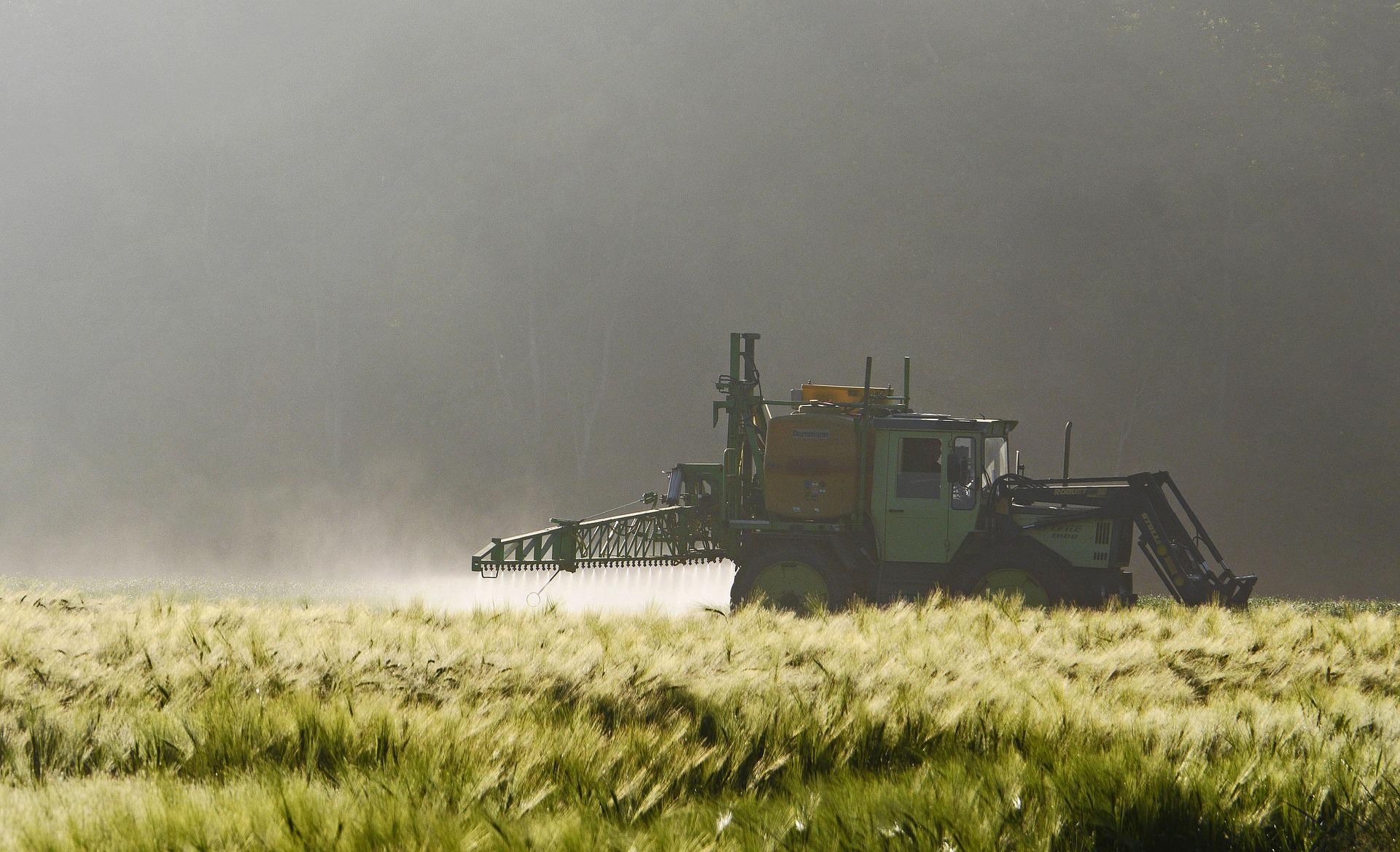You are here
When It Comes to Glyphosate, Who Shall We Trust?
When It Comes to Glyphosate, Who Shall We Trust?
When it comes to glyphosate, who shall we trust?
By Thomas Christopher
I’m not partial to the use of pesticides. As a rule, if a plant in my garden cannot survive without them, I replace it with something else. However, like many gardeners I had accepted the assurance from manufacturers and government agencies that the weed killer glyphosate (commonly sold in the formulation known as “Roundup”) was, if used with the recommended precautions, safe. I confess that I have resorted to it for tasks such as ridding an area of invasive weeds before replanting with native vegetation, and even just to clear weeds from my gravel driveway.
Then I developed neuropathy, a numbness in my feet. The neurologist who is treating me told me to avoid any further exposure to herbicides, especially Roundup.
I mentioned this on a recent episode of the “Growing Greener” podcast that I produce for the Berkshire Botanical Garden. Almost immediately I received a message from a listener who asserted that glyphosate has never been associated with symptoms such as mine and referred me to the website of the National Pesticide Information Center of Oregon State University.
Indeed, I found that authority quotes the EPA, the Environmental Protection Agency, in denying that glyphosate has adverse effects on the human nervous system, or any other significant health impacts. When, however, I went to a report on glyphosate from the prestigious Icahn School of Medicine at Mount Sinai Hospital in New York, I found a very different story. It cited glyphosate not only as a probable neurotoxin, but also as a probable source of cancer, hormone disruption, birth defects, and antibiotic resistance.
Curious now, I did some more digging. This revealed a stark disagreement. Government agencies, especially in the United States, typically follow the EPA’s lead, whereas non-governmental scientific studies commonly suggest very serious health impacts. To understand this discrepancy, I eventually turned to Carey Gillam.
Gillam is a veteran investigative journalist who for 17 years worked as a senior correspondent for the international news agency Reuters covering the agricultural beat, with a particular focus on the agricultural chemicals giant Monsanto. Monsanto’s premier product was Roundup, which it marketed in combination with seeds of crops genetically engineered for Roundup resistance so that customers could treat weeds by spraying the herbicide right onto fields of soybeans, corn, sugar beets and several others. Monsanto had built this into a multi-billion dollar industry. Gillam began investigating the details. In 2015, she left Reuters to work full time on the book she published in 2017: “Whitewash – The Story of a Weed Killer, Cancer and the Corruption of Science.”
Winner of the Society of Environmental Journalist’s Rachel Carson Book Award, “Whitewash” traces the history of a long campaign by Monsanto to discredit any scientists whose work revealed possible problems with the use of glyphosate, and to coopt regulators at the EPA.
The story is important because Roundup, and the glyphosate-based herbicides manufactured by Monsanto’s competitors after its patent had expired, are ubiquitous. Used worldwide, they are especially common in the United States, where in 2014, Gillam noted in “Whitewash,” farmers applied 276 million pounds of glyphosate to their fields. Because they commonly spray the herbicide right onto the growing food crops, their harvests contain significant traces of glyphosate, so that consumers unwittingly ingest it with their food. Glyphosate has been found in breast milk, and in some regions, in the tap water.
A crack opened in Monsanto’s defenses in 2015 when the World Health Organization’s International Agency for Research on Cancer assembled a panel of 17 scientists from 11 different countries (including the United States) to analyze the results of about 1,000 studies of glyphosate’s health impacts. The result was the labeling of glyphosate as a probable human carcinogen linked in particular to non-Hodgkin’s lymphoma. This has led to lawsuits involving more than 100,000 individuals with that disease against Monsanto and subsequently Bayer, the German-based multinational that purchased Monsanto in 2018. To date, Gillam told me, three trials have been decided, all in favor of the cancer victims, with one jury awarding the two plaintiffs damages of $2 billion.
Bayer is currently trying to appeal to the United States Supreme Court. What the upshot of that will be is an open question. However, I have decided to follow my neurologist’s advice and avoid this “safe” herbicide to the extent that I can.
To listen to the rest of my conversation with Carey Gillam, go to the “Growing Greener” archive on the Berkshire Botanical Garden website: www.berkshirebotanical.org.
Thomas Christopher is a volunteer at Berkshire Botanical Garden and is the author or co-author of more than a dozen books, including Nature into Art and The Gardens of Wave Hill (Timber Press, 2019). He is the 2021 Garden Club of America's National Medalist for Literature, a distinction reserved to recognize those who have left a profound and lasting impact on issues that are most important to the GCA. Christopher’s companion broadcast to this column, Growing Greener, streams on WESUFM.org, Pacifica Radio and NPR and is available at berkshirebotanical.org/growinggreener.
Help Our Garden Grow!
Your donation helps us to educate and inspire visitors of all ages on the art and science of gardening and the preservation of our environment.
All donations are 100 percent tax deductible.


